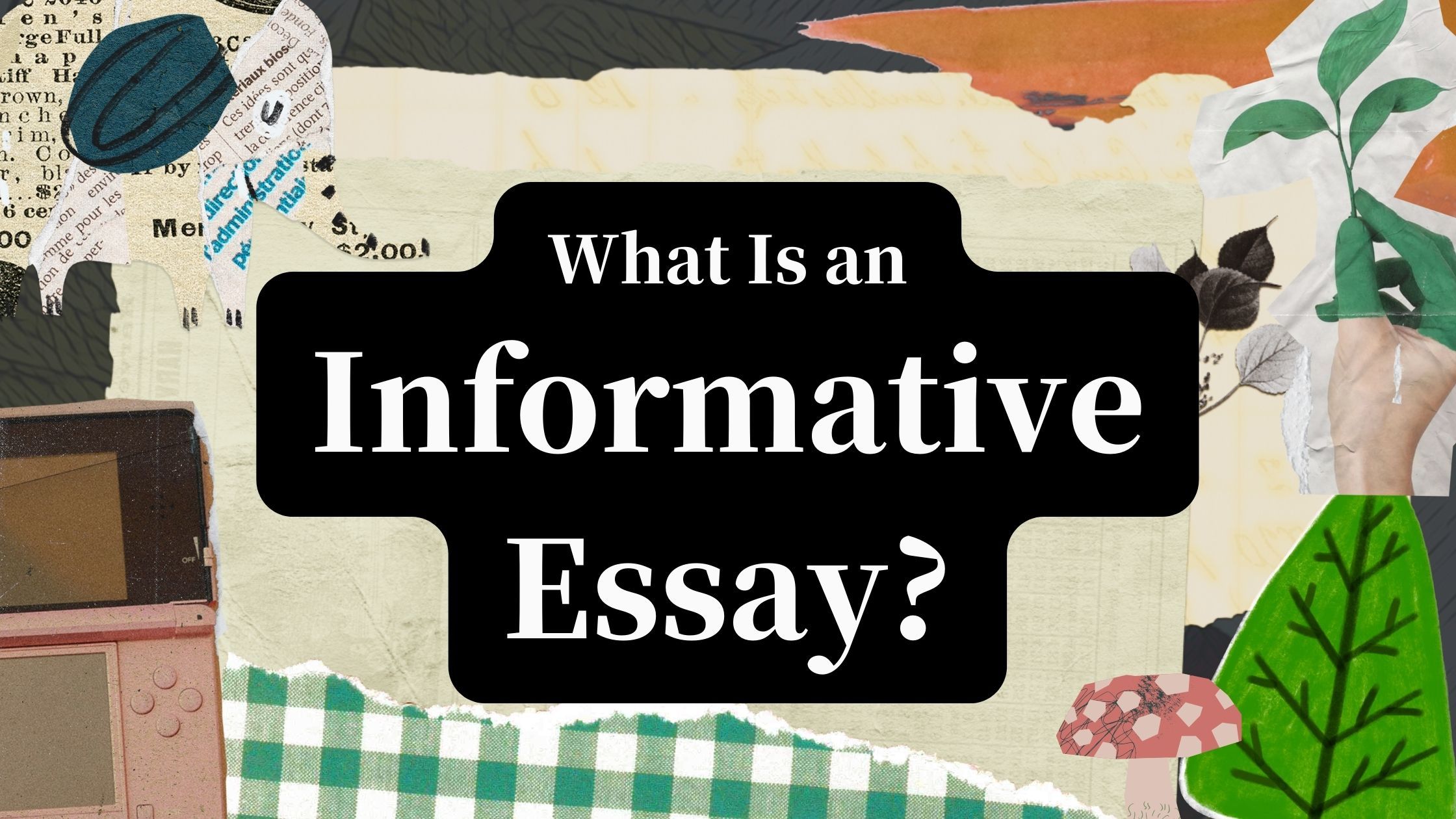Want to win people over online? Start with the facts.
An informative essay refers to a post, article, or paper intended to educate the reader. Informative essays are a cornerstone of grammar classes worldwide, but for many of us that was decades ago. Refreshing on the basics of informative writing can help you educate readers in essay or blog format.
Key Takeaways
- An informative essay outline typically has five components, which we’ll go through below.
- Consider including a topic sentence or thesis statement in the essay introduction.
- There are different informative essay types, depending on whether your goals relate to marketing or academia.
- When a teacher assigns an informative essay, they’ll look for a clear thesis statement, an essay hook, and clear body paragraphs.
If writing an academic paper, you may also need to include citations. Here’s how to write an informative essay that will keep a reader’s interest.
Table of Contents
What Is an Informative Essay, and Why Care?
Informative writing aims to communicate interesting facts about a main idea. Informative essays are usually expository essays, rather than persuasive essays or editorials.
However, the act of outlining topics to your reader in a clear, concise manner can in itself be persuasive. More than ever before, readers are seeking out content that is both thorough and clear.
Tip:We don’t want to follow informative essay structure to the letter in web publishing—the paragraphs come out too long. Opt for shorter, more broken-up paragraphs to make your writing more accessible.
Informative essay topics can cover one or more of the following:
- Background information on a topic in your field or industry.
- A new or interesting way to analyze data.
- An overview of research or an important subject.
Informative essay ideas sound boring at first. But on search engines like Google, informative content does very well.
Each and every day, people use search engines to get their questions answered. If your content shows up in search results, this equates to new, free visitors to our writing every month.
We like this!
Examples of Good Informative Essays
Western Technical College has a great page with past informative essay examples. Notice how the title communicates the thesis statement while also being catchy.
Some of my favorites were:
When writing an informative essay, try to avoid cliche openings or phrases. It’s fine to have them in your first draft or rough draft in order to get the words on the page. But in later drafts, consider refining this language.
You’ll have an easier time holding a reader’s attention, which is the most important thing our writing needs to do.
The 5 Parts of a Good Informative Essay
No. 1: The Lead
The informative essay introduction needs to be clear and concise. Your thesis statement should appear early on; essay writing is about structure as much as it is about prose. Treat your introductory paragraph like a journalism lead to ensure your opening is an attention grabber.
No. 2: Helpful Context
Consider using a body paragraph or two to provide your readers with sufficient context about the topic.
You’ll want to maintain logical transitions throughout your essay, but by providing background information early on, you’ll help your reader get the details they need to appreciate the whole essay.
I sometimes think of this section like a flashback. Before we dive into the meat of the article that was teed up in the introduction, we need to make sure readers are all on the same page.
No. 3: A Restatement of the Thesis
If you spent several paragraphs giving context, consider including a transition sentence that repeats your thesis statement. In marketing, we want to repeat our core message multiple times. The same is true for informative essay topics.
No. 4: The Body
The informative essay body comes fourth in our list, but is usually the majority of the article. Use the essay body to expand on your topic ideas. The body should explain your main topic with illustrative examples and supporting research.
Example harvesting can become a time suck. Typically, when writing articles, we’ll approach in one of two ways:
- Collect evidence and research, then outline and write. (The preferred, more journalistic approach)
- Write the draft first, then get examples that support your points and structure. (The more output-focused approach)
Additionally, when writing body paragraphs, consider whether the content will be published online. If content will be viewed on a mobile device, consider cutting up your body paragraphs.
When writing academic papers, however, you’ll want to check the recommended style guides for a bachelor’s degree or other course of study.
No. 5: The Conclusion
Writing an informative essay means creating a tight essay conclusion that lands the point. When done well, an informative essay conclusion only needs one conclusion paragraph.
Really, It's Not a Big Deal:Single-sentence paragraphs are an acceptable style deviation for web publishing. It’s okay!
To Win Readers’ Trust, Inform Them Quickly and Well
Learn how to write an informative essay, and you’ll have the skill set you need to create content and build a foundation for your expertise. When you follow a clear essay outline, your writing process will fall into place.
Thanks For Reading 🙏🏼
Keep up the momentum with one or more of these next steps:
📣 Share this post with your network or a friend. Sharing helps spread the word, and posts are formatted to be both easy to read and easy to curate – you'll look savvy and informed.
📲 Hang out with me on another platform. I'm active on Medium, Instagram, and LinkedIn – if you're on any of those, say hello.
📬 Sign up for my free email list. This is where my best, most exclusive and most valuable content gets published. Use any of the signup boxes on the site.
🏕 Up your writing game: Camp Wordsmith® is a content marketing strategy program for small business owners, service providers, and online professionals. Learn more here.
📊 Hire me for consulting. I provide 1-on-1 consultations through my company, Hefty Media Group. We're a certified diversity supplier with the National Gay & Lesbian Chamber of Commerce. Learn more here.


